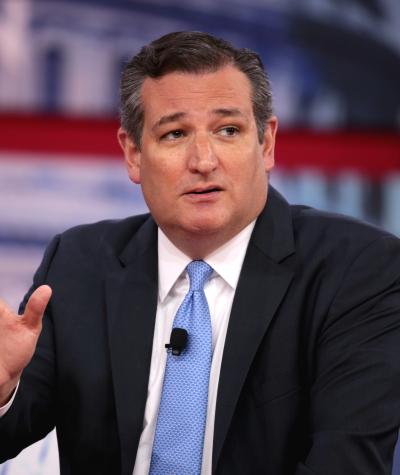There are few provisions of the Federal Election Campaign Act (FECA) that regulate a narrower slice of campaign activity while simultaneously advancing a stronger anti-corruption interest than the post-election loan repayment limit challenged by Sen. Ted Cruz in a case now before the U.S. Supreme Court.
Until about two years ago, when the senator filed his lawsuit, FEC v. Cruz for Senate, the limit occupied a relatively obscure backwater of federal law that regulated how a campaign should retire its debts following an election, including any loans from the candidate.
FECA gives wide berth to the possibility that candidates may choose to self-finance their campaigns—including through loans—an activity accorded First Amendment protection. Federal law thus does not limit how much a candidate can spend on his campaign nor how much he can loan to his campaign committee.
His committee may use any contributions raised in the course of the campaign to repay such personal loans without limitation.
The only thing the challenged law limits is using more than $250,000 in contributions solicited after the election to repay candidate loans.
The rationale is that this money does not support the candidate’s campaign or anything that could be characterized as “speech,” but instead effectively goes straight from the contributor’s checkbook to the candidate’s back account.
Post-election loan repayment is properly viewed as a “gift”—raising all the same corruption risks as would a candidate’s or officeholder’s acceptance of other direct financial benefits.
At the least, as the FEC pointed out, this type of post-election fundraising gives rise to, “the appearance of federal candidates trading dollars for favors in the context of repayment of candidate loans.”
Nevertheless, the lower court deemed the anti-corruption purposes of the challenged law novel and unsupported. The Supreme Court now has the opportunity to summarily reverse this judgment and restore an uncontroversial law that effectively had been operating as an important “gift” limit at the federal level for the last 20 years.
The amicus curiae brief filed by CLC urges the Court to do exactly this.
First, the lower court ruling defies common sense. Since Buckley v. Valeo, the Supreme Court has recognized that a candidate’s reliance on private campaign contributions created an “inherent” problem of real or apparent corruption.
If contributions to a campaign treasury to fund legitimate electioneering creates such “inherent” risks, then what does a post-election contribution that ends up in a candidate’s own pocket do?
This ruling also disregards the evidence the FEC presented showing that the loan repayment limit serves to prevent actual and apparent corruption, including instances of problems at the state level arising from post-election debt.
For example, in Ohio, former attorney general and now governor Mike DeWine repeatedly loaned his campaign money and then raised millions of dollars in post-election contributions to pay off that debt, including from entities who sought—and ultimately received—state contracts.
Media reports questioned the propriety of his acceptance of large post-election contributions for this purpose, including contributions from many lawyers that, “hold special counsel contracts awarded by the attorney general’s office to represent public pensions, colleges, state agencies and more.”
Companies whose contracts were not renewed during the DeWine years were reportedly justly, “skeptical about the political purity of the contracting process.”
The district court also did not explain its rejection of robust polling data from 1,000 Americans, 81% of whom stated that they “believed it was ‘very likely’ or ‘likely’ that individuals who donate money to a federal candidate’s campaign after an election expect a political favor in return from candidates who later take office.”
Finally, the district court ignored the Supreme Court’s 2003 directive the courts should, “accord substantial deference to the predictive judgments of Congress, particularly when, as here, those predictions are so firmly rooted in relevant history and common sense.”
Indeed, it would be hard to imagine two topics about which Congress has more expertise than the pressures of campaign fundraising and the temptations arising from personal gifts received from contributors and supporters.
The Supreme Court should now weigh in and validate Congress’s “prediction” that post-election contributions that directly and personally enrich candidates pose a particularly acute threat of corruption and thereby realign federal law with common sense and the public interest.

